Research results show that alcohol addiction can be reduced with 'insanely simple brain training' that can be done with smartphones

Effect of Cognitive Bias Modification on Early Relapse Among Adults Undergoing Inpatient Alcohol Withdrawal Treatment: A Randomized Clinical Trial | Research, Methods, Statistics | JAMA Psychiatry | JAMA Network
https://jamanetwork.com/journals/jamapsychiatry/article-abstract/2772631
How a simple brain training program could help you stay away from alcohol
https://theconversation.com/how-a-simple-brain-training-program-could-help-you-stay-away-from-alcohol-148431
Due to the impact of the new coronavirus infection, sales of alcohol is increasing rapidly in addition to it has been reported that, from the fading of the connection due to a new way of life to avoid contact with the city blockade and people, 'the experts from alcohol dependence The number of consultations for illness may increase . '

Victoria Manning, a clinical addiction researcher at Monash University in Australia, is particularly concerned about drinking habits. When drinking becomes a habit, people unknowingly turn to places, sights, and smells that remind them of drinking, and as a result, they immediately become urged to drink alcohol. Manning explains.
Such psychological work is a kind of '
Therefore, Manning's research team developed a training called 'Cognitive Bias Correction (CBM)' for patients who are treating alcohol dependence and conducted research to confirm its effect.
You can see what kind of training CBM is by playing the following movie in one shot.
“SWIPE”: Brain-training app to reduce alcohol cravings and consumption --YouTube
If you have a habit of drinking alcohol, even if you think 'Let's run later!' While returning home ...
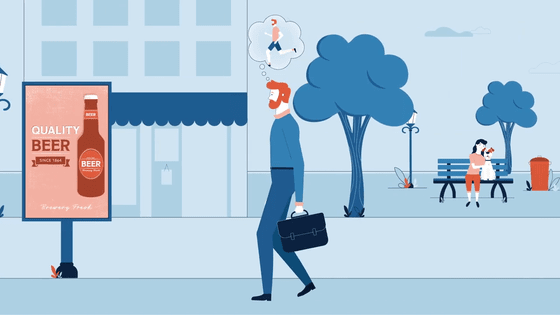
As soon as the beer ad comes into view, the beer gets stuck in my head.
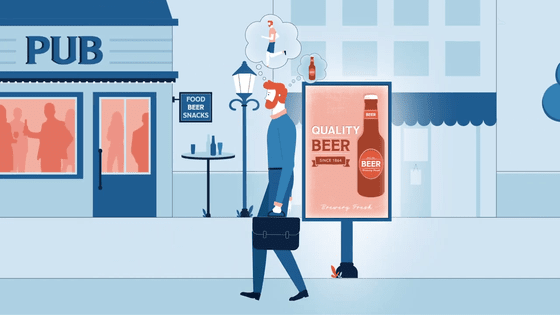
As I watch people drink alcohol and hear the sound of a glass ringing, the proportion of beer in my head grows bigger and bigger ...
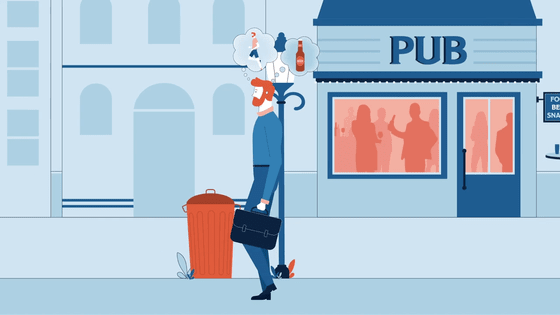
By the time I get home, my running is completely gone and I'm reaching for beer. This is cognitive bias.
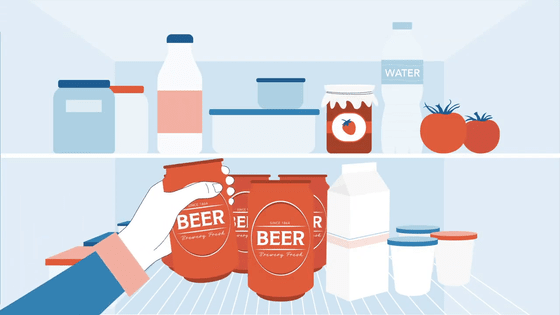
Therefore, Manning et al. Developed a brain training called CBM that reduces cognitive bias.
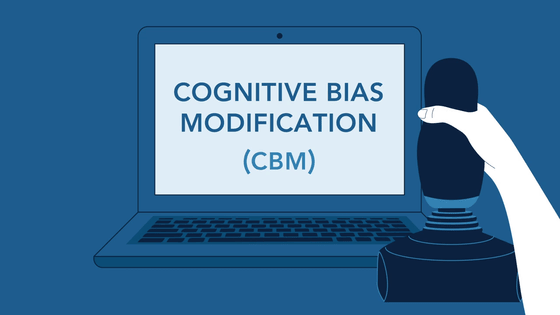
The content of the brain training is very simple. If alcoholic beverages such as beer are displayed on your PC ...
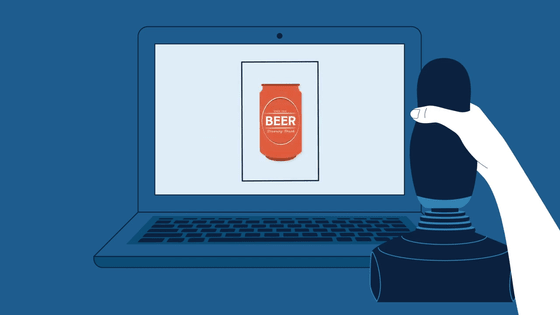
Push the lever to the back as if you were poking the beer, and erase the image of the beer.
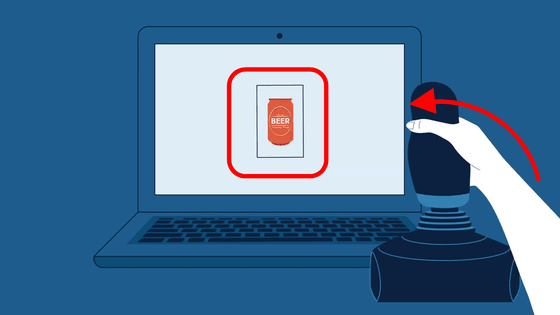
On the contrary, if a healthy drink such as mineral water is displayed ...
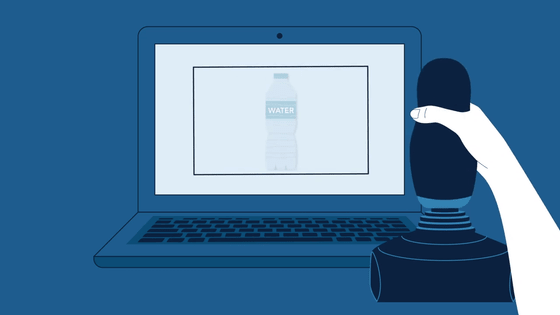
Pull the lever toward you.
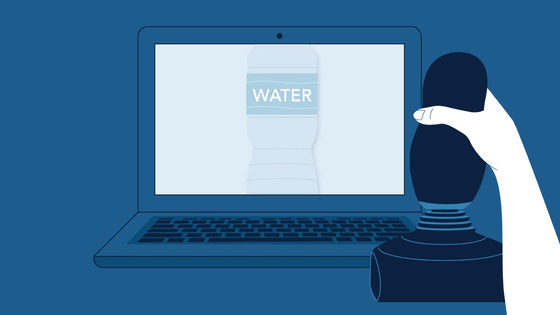
This is the brain training developed by Manning's research team.
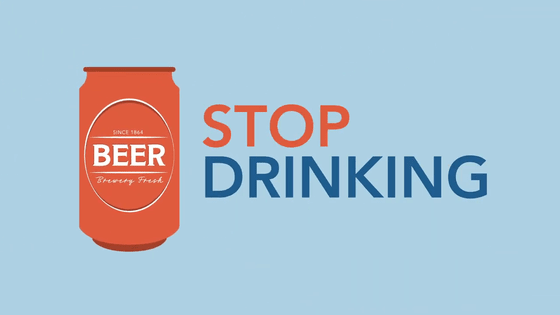
In fact, when Manning et al. Conducted an 'experiment in which CBM brain training was performed for 15 minutes per day for 4 consecutive days' for a total of 300 alcoholics, the group who performed brain training was cut off. The liquor success rate was about 63.8%. On the other hand, the success rate of abstinence from the fake training group was about 46.8%, which was a difference of 17 percentage points.
From this, Manning said, 'We are confident that CBM will optimize the
In addition, the research team is also developing an app ' SWiPE ' that allows brain training with just a smartphone without using a PC or lever. As the name 'swipe' suggests, this app allows you to perform CBM brain training by swiping the screen up and down instead of moving the lever back and forth.
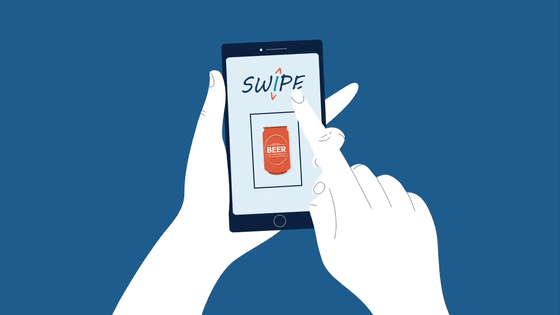
'SWiPE' is in the verification stage at the time of article creation, but the initial test results are promising.
Related Posts:







